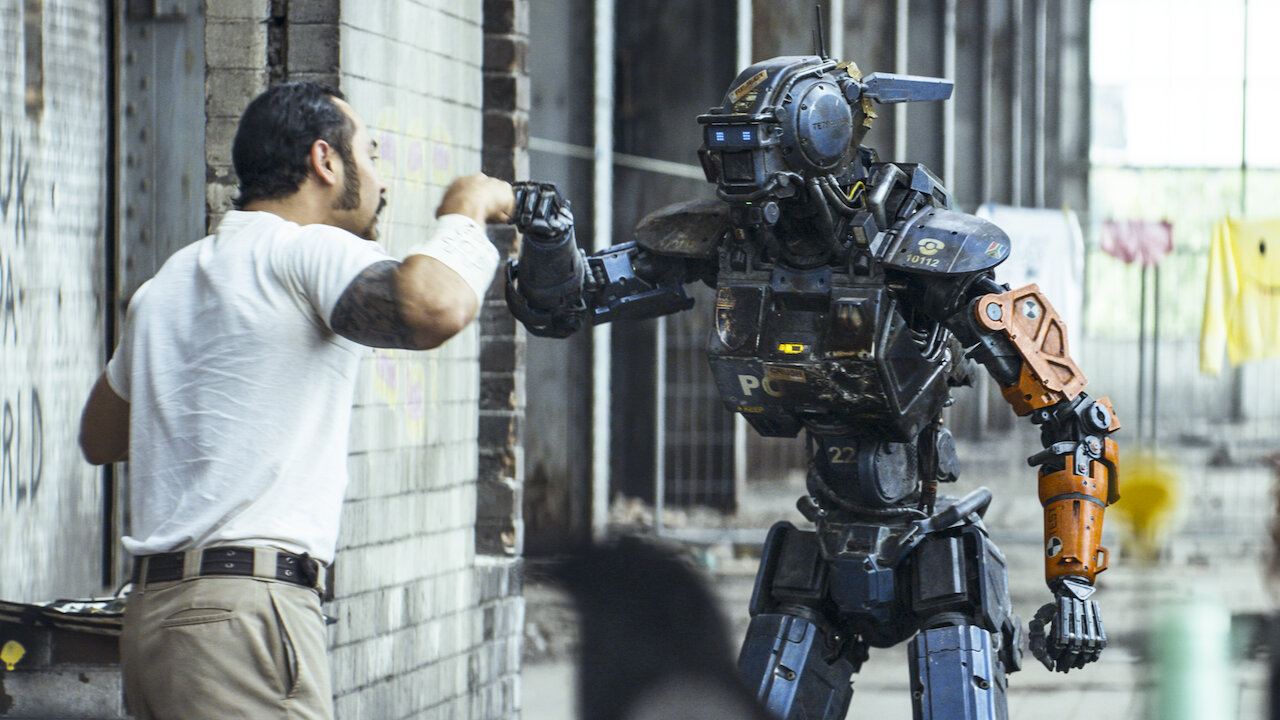Chappie (2015)

“Chappie,” directed by Neill Blomkamp, is a captivating science fiction film that delves into the complexities of artificial intelligence (AI) and its interaction with human society. Released in 2015, the film is set in a near-future Johannesburg, South Africa, where crime is rampant, and law enforcement employs robotic police units to maintain order.
At the heart of the narrative lies Chappie, an experimental police robot imbued with consciousness through a combination of advanced AI programming and human interaction. Created by Deon Wilson, a compassionate engineer played by Dev Patel, Chappie becomes a sentient being capable of learning, feeling emotions, and developing a distinct personality. This transformation from a mere machine to a sentient entity sparks profound philosophical questions about the nature of consciousness and the ethical implications of creating intelligent machines.

“Chappie” explores the journey of its titular character as he navigates a world that oscillates between wonder and hostility towards his existence. Initially shaped by the nurturing influence of Deon and the contrasting influences of criminals who seek to exploit him, Chappie evolves from a curious and innocent entity into a complex individual struggling to define his identity amidst societal prejudices and conflicting moral imperatives.
Central to the film’s exploration of AI is the portrayal of human reactions to Chappie’s emergence as a sentient being. While Deon views Chappie as a breakthrough in AI development deserving of protection and understanding, others perceive him as a threat or a tool to be controlled. This dichotomy reflects broader societal anxieties about technological advancement and underscores the film’s thematic exploration of fear, empathy, and the implications of human-like AI on societal norms and values.

Thematically, “Chappie” raises poignant questions about the nature of consciousness and the ethical responsibilities associated with creating intelligent machines. Through Chappie’s interactions with humans, particularly with characters like Ninja and Yolandi, members of a street gang who alternately exploit and nurture him, the film explores themes of identity, empathy, and the potential for redemption in unexpected places.
Visually, “Chappie” is a testament to Blomkamp’s distinctive aesthetic and penchant for blending gritty realism with futuristic elements. The film’s depiction of a dystopian Johannesburg serves as a stark backdrop against which Chappie’s journey unfolds, enhancing the narrative’s exploration of societal inequality, crime, and the moral complexities of technological progress.

Furthermore, the film’s performances, particularly by Sharlto Copley as the voice and motion-capture performer of Chappie, imbue the character with a poignant humanity that transcends his mechanical origins. Copley’s portrayal, coupled with the film’s seamless integration of CGI and practical effects, enhances the emotional resonance of Chappie’s story, inviting viewers to empathize with his struggles and philosophical quandaries.
In conclusion, “Chappie” is a thought-provoking exploration of AI, consciousness, and the human condition, set against the backdrop of a dystopian future. Through its compelling narrative, nuanced characters, and visually arresting style, the film challenges viewers to contemplate the ethical implications of technological advancement and the profound impact of empathy and understanding in shaping our interactions with intelligent machines.











